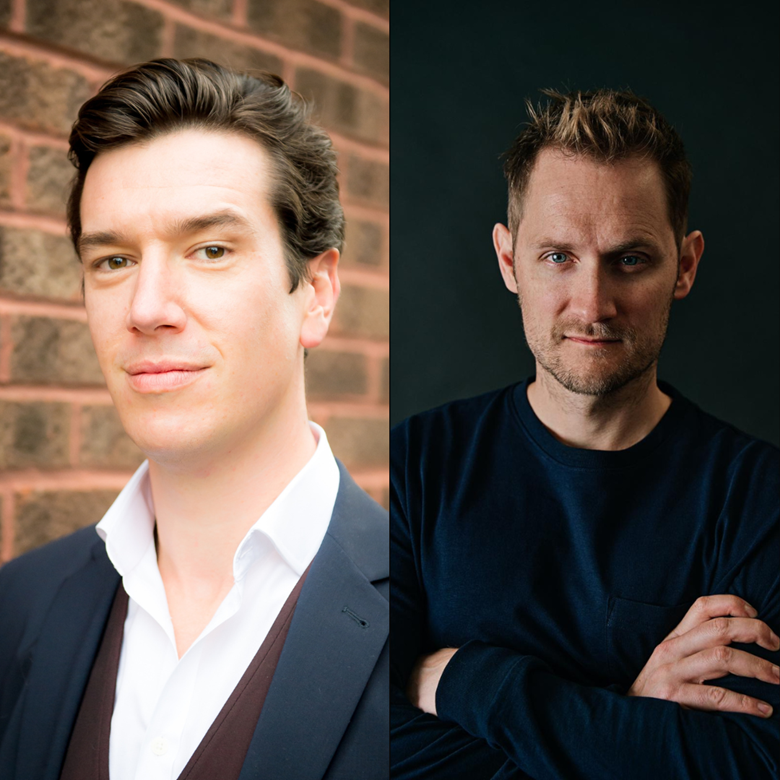Meeting Lliam Paterson: 'My starting point was trying to find a musical externalisation of Sherlock’s inner world'
Theo Elwell
Monday, July 29, 2024
Opera Now speaks to composer, Lliam Paterson about the world's first Sherlock Holmes opera

Q. This is the world’s first Sherlock Holmes opera. Tell us about how this came to be?
I was contacted by David Ward, the Artistic Director of Northern Opera Group, after he heard my opera The Angel Esmeralda (an adaption of a Don DeLillo short story) performed by the Guildhall School of Music and Drama. After devouring the entire Sherlock Holmes stories during lockdown, he had the idea of commissioning a Sherlock Holmes opera: the universal appeal of Arthur Conan Doyle’s most famous creation seemed an ideal way to broaden access to opera. This chimed with my passion for community-based opera work, so I was very taken with the idea!
In April 2022, we had a brilliant R&D week at the East Riding Theatre in Beverley with a small cast of singers and répétiteur. We explored four different scenes and performed extracts to a local audience at the end of the week. This was remarkably useful groundwork in finding what style of adaption would work best, and gave us the chance to receive feedback from both those familiar with and new to opera.
Q. The Sherlock franchise, both on TV and film, has a very strong musical identity. How did you go about creating a unique sound world, away from the existing scores? Did you take any inspiration from them?
I avoided all TV and film adaptions of the Sherlock franchise during the writing process. It was important to me to return to the original source material, to think about the sounds, smells and sights of Victorian London. Arthur Conan Doyle provides such wonderfully evocative images of the city. My starting point for the opera’s sound world was trying to find a musical externalisation of Sherlock’s inner world: his mechanistic logic tracing patterns. One solution was to have the music revolve obsessively around a close-knit collection of themes and thematic material. This morphs through a wide variety of moods but keeps the sound world cohesive.
I also wanted a nod to Sherlock’s infamous violin playing! There are various unaccompanied violin solos throughout, and a small group of strings - violin, viola and cello - form the bedrock of the ensemble. At times I wanted to evoke music that would have been familiar to the characters, so we have a returning waltz idea heavily indebted to late-nineteenth century chamber music. However, most of these references are more subtle: in one scene we have nods to British music hall. These touches keep the sound world playful, reflecting Sherlock’s mischievous nature.


The official poster of Sherlock Holmes and the Sign of the Four | Photo courtesy of Lliam Paterson
Q. Tell us about your future plans for the opera?
There are plans in the works for a tour of the opera in 2025, including to London. My hope is that audiences will be attracted by this unique reimagining of Sherlock Holme’s world, even if they are unfamiliar with opera.
The opera ends with a nod to The Hound of the Baskervilles. This opera was so much fun to write that I can easily imagine a sequel!
Q. Where will it be premiered?
The Sign of Four will be premiered at Leeds School of Arts as part of Leeds Opera Festival 2024. We have a fantastic core creative team, with direction by David Ward, music direction by Ellie Slorach and design by Caitlin Mawhinney.
Q. Tell us about your writing process. Does it begin with themes/sounds/words?
My writing process begins with words - I wrote the libretto for the opera, so I was really thinking of how to adapt the original story into a dramatic and convincing shape on stage first of all. I retained certain phrases from Conan Doyle’s text very closely, and embedded them in my own contemporary literary style. Mainly these were dialogue or poetic images that could be adapted directly. Elsewhere, the text required a greater reimagining to work dramatically, and to provide quintessentially operatic moments. I also spend time researching the historical context for any story I’m adapting. Here my research took me along some fascinating avenues: crime and justice in Victorian England, the history of the British Raj, boating on the Thames.
Since we had a R&D process early on, I was able to explore themes and sounds when only a small amount of the libretto had been written. This meant I knew what the main themes of the opera were during most of the libretto writing process. I like to find a unity between rhythm and form of language and musical material when I write, so this greatly helped that process. Hopefully it will be apparent how closely aligned the highly rhythmic nature of the music and the rhythm of dialogue are.
Once musical parameters are in place, I can freely explore the sound world of the opera as I write. Now the composition process can flow within a cohesive musical language. At all times I’m thinking at two levels: the action enacted on stage and the interior psychology of the characters.
The last thing to add about my process of creating opera is that I am always looking for moments that embody the spirit of opera: arias, ensembles, choruses. I build these into the libretto so that I have musical landmarks to aim for; moments which provide more reflective musical interest for the audience. One of the moments I’m proudest of in The Sign of Four is the final love duet between Doctor Watson and Mary Morstan: it takes a single line of the original text and spins it into a moment of intense, amorous connection. For me, these moments of universal beauty are so key to the continuing allure of opera.






